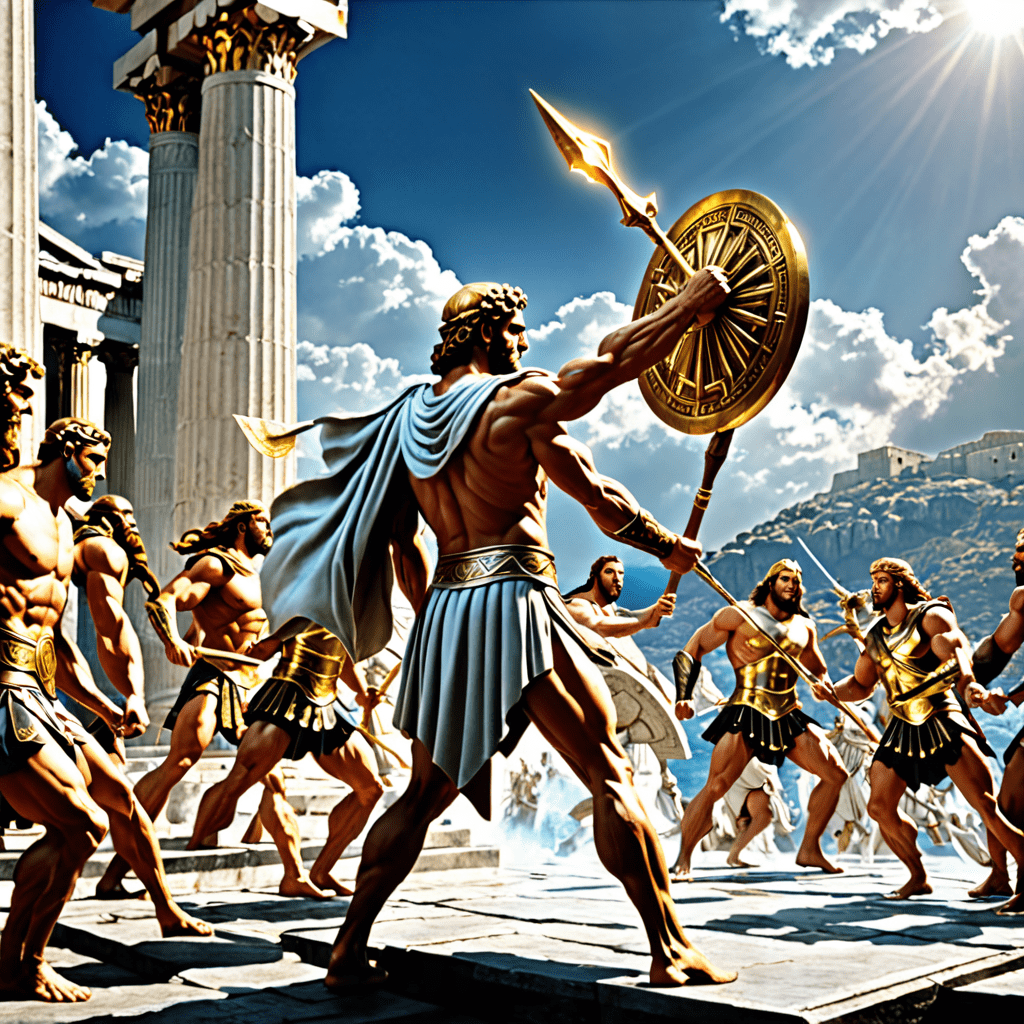The Representation of Heroes in Greek Mythology
Introduction to Heroes in Greek Mythology
Heroes in Greek mythology play a significant role in shaping ancient stories and cultural beliefs. These heroes were often demigods or humans with extraordinary strength, courage, or intelligence. They were celebrated for their quests, battles, and adventures, often facing challenges from gods, monsters, and other adversaries.
Characteristics of Greek Heroes
Greek heroes were characterized by their bravery, noble lineage, and divine connections. They exhibited qualities such as valor, honor, cleverness, and loyalty. These heroes often possess a tragic flaw, known as “hamartia,” which contributes to their downfall. Their journeys are marked by overcoming obstacles and achieving glory through their deeds.
Famous Greek Heroes
– **Heracles (Hercules)**: Known for his incredible strength and the famous Twelve Labors he had to complete as punishment.
– **Perseus**: Renowned for slaying Medusa and rescuing Princess Andromeda.
– **Achilles**: The hero of the Trojan War, known for his invulnerability except for his heel.
– **Theseus**: Founder of Athens and the slayer of the Minotaur within the Labyrinth.
– **Odysseus**: Protagonist of the Odyssey, renowned for his cunning and endurance in his journey back home.
Legacy of Greek Heroes
The tales of Greek heroes have permeated modern literature, art, and popular culture. Their stories continue to inspire moral lessons, themes of heroism, and the eternal struggle between good and evil. These heroes symbolize humanity’s aspirations for excellence, courage in the face of adversity, and the embodiment of the noble virtues.
In conclusion, the representation of heroes in Greek mythology offers profound insights into the values, beliefs, and aspirations of ancient Greek society. By understanding the characteristics, deeds, and legacy of these heroes, we can delve into the rich tapestry of cultural heritage that continues to captivate and resonate with audiences worldwide.
What is the significance of heroes in Greek mythology?
Heroes in Greek mythology hold immense significance as they often embody the virtues, strengths, and flaws that Greeks admired or feared. These heroes, whether semi-divine like Heracles or mortal like Achilles, undertake epic quests and face formidable challenges, showcasing the human experience in a larger-than-life narrative.
How are heroes portrayed in Greek mythology?
Heroes in Greek mythology are depicted as individuals with extraordinary abilities or qualities, often favored by the gods. They display valor, intelligence, and resilience while navigating a world filled with mythical creatures, gods, and complex moral dilemmas. These heroes serve as inspiring figures, reflecting the values and beliefs of the ancient Greek society.
Who are some notable heroes in Greek mythology?
Some notable heroes in Greek mythology include Heracles, known for his incredible strength and twelve labors; Achilles, the invulnerable warrior of the Trojan War; and Odysseus, the cunning hero of the Odyssey. These figures, among others like Perseus and Theseus, exemplify different aspects of heroism and are central to many legendary tales.




